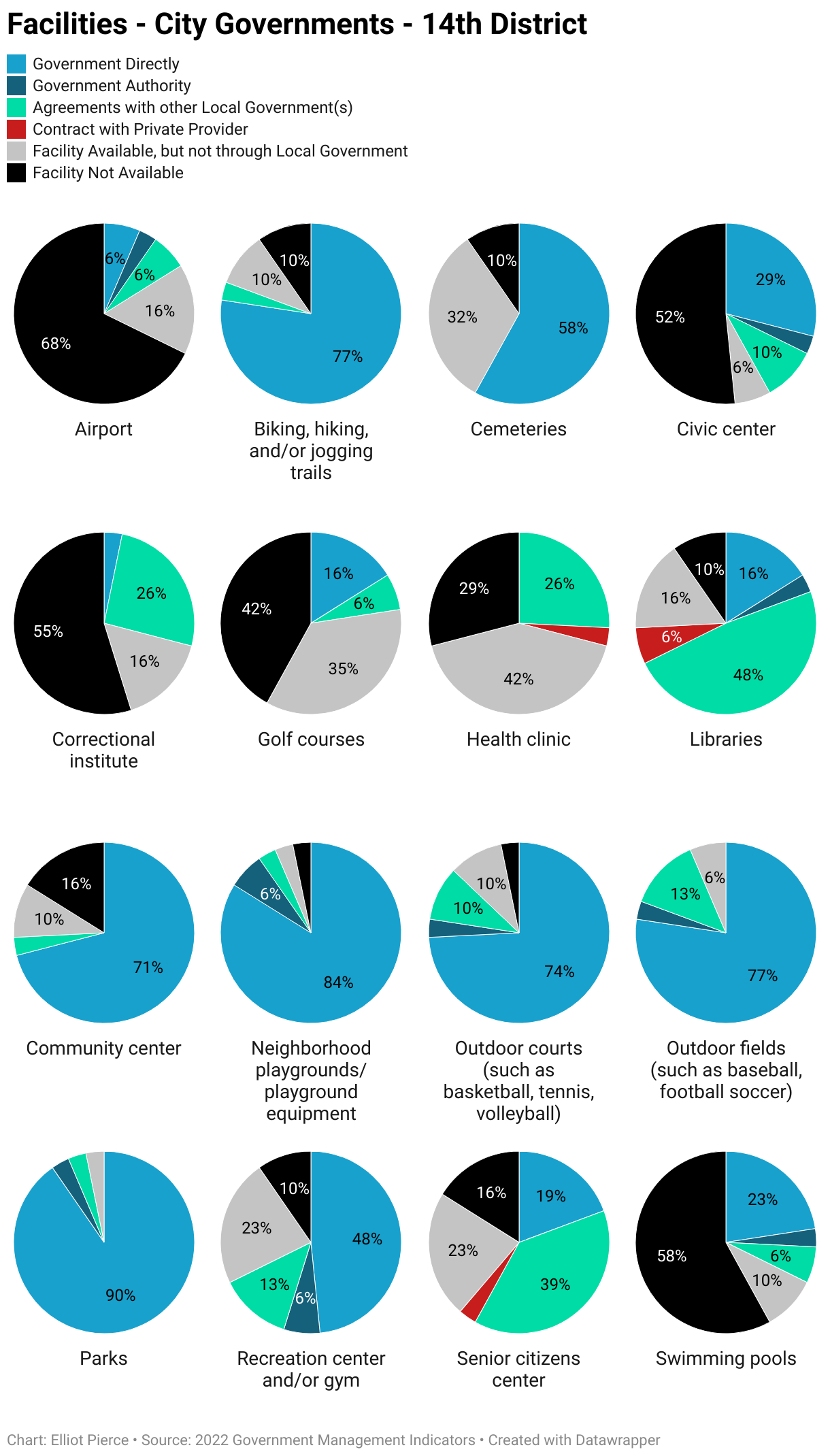The core belief of our nation's founders was that the government's primary responsibility is to secure the conditions of life and liberty so that individuals may pursue happiness. This sentiment lived on in the Jeffersonian tradition and was present in different political parties for over a century but was abandoned with the Progressive Era and new deal rejection of founding principles. The modern conservative movement arose to carry on this sentiment. Thus, conservativism’s central tenet is to conserve the principles of the founding.
The Republican Party has long been the standard-bearer of conservatism. At the heart of GOP conservatism lies a commitment to limited government intrusion in both the economic and social spheres.
So you'd think that residing in one of the ten most Republican districts in the country would guarantee local governments are adhering to the central tenets of conservatism, especially since most voters and elected officials proudly wear the conservative label. But you'd be mistaken.
How can we gauge the conservativeness of a government? One way is to examine the extent of its services. Limited government encourages the flourishing of free-market principles, leading to competitive economic environments and ample opportunities for entrepreneurship.
Take a look at the two images below. They show the services available in each county and city in the 14th congressional district and who provides or operates them.
Ideally, the more services that can be provided by private providers(non-profit or for-profit), the better. Private providers are shown in red.
Now take a look at the next two. Here are the facilities available in each county and city within the 14th congressional district and who provides or operates them.
Finally, another way of measuring the conservativeness of government is by looking at tax policies. Below are the property tax millage rates for counties in the 14th congressional district(current makeup) since 1999.
Do you see a trendline?
It’s time to confront these charts’ sobering reality and underlying narrative.
To be clear, this is not an attack against the men and women who serve in local government—employees or elected officials. Rather, it should be viewed as a spark to ignite a conversation and process of assessment and innovation.
Improper and too much government intervention, though often well-intended, insidiously encroaches upon our society, gradually undermining the very fabric that holds it together. It is a creeping force that, more often than not, deprives citizens of their agency and the opportunities necessary for pursuing happiness.
Given the glaring indicators of an impending economic slump, it's incumbent upon local leaders to seize this moment. Challenge yourselves and the governments you serve to hunt for efficiencies and, above all, embrace dynamic and diverse solutions to provide and operate services and facilities.
Consider, for example, consolidation. Some counties have 7+ water and wastewater providers, all of which are owned and operated by local governments or public authorities. The redundancy and waste involved in these duplicative services alone are surely on a grand scale. Another example is animal shelters and animal control.
Not only should consolidation of facilities and services between governments be part of the discussion, but the operation of them should as well. Public-private partnership operations for animal shelters and control have proven to be far superior to traditional government operations with better service and more predictable costs. The same is true with public-private water and wastewater utilities.
Naturally, the list of services mentioned above barely scratches the surface. Digging deeper, I discovered that both counties and cities share a peculiar obsession with mowing and landscaping rights of ways, medians, and public property. To put it bluntly, this is insane. The exorbitant capital investment in equipment, which then gathers dust for half the year, is simply nonsensical.
A far better approach would involve dividing rights of ways and public property into zones or segments, each of which private providers could bid on. Performance contracts would ensure superior service, and the zonal strategy would enable smaller providers to bid on contracts.
A good rule of thumb: a private provider should be preferred if the service is in the phone book. Not that anyone has a phonebook these days.
Governments at all levels would do well to scale back interventionist tendencies and seek alternative and innovative market-driven solutions for the services they provide. As conservatives, we must not lose sight of the fundamental purpose of government: to secure the conditions essential for life, liberty, and the individual pursuit of happiness.
P.S. Once we do that, it’s time to start paying public safety officials the wages they deserve. I don’t want to face violent criminals day in and day out, and I don’t want to run into burning buildings, but having individuals willing to do those things is critical for me and everyone else to pursue our own happiness. Not to mention it is the essence of why government exists. Paying them what they deserve is long overdue.










